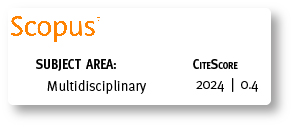An empirical performance evaluation of a semantic-based data retrieving process from RDBs & RDF data storages
Abstract
ABSTRACT
SQL and, more recently, SPARQL are standard languages of the software industry for retrieving data. Other studies showed that retrieving data by using a SPARQL query is much slower than the semantically equivalent SQL query. Nevertheless, some recent proposals optimized database servers for SPARQL queries. This paper presents the results of a comparative analysis between the capability of SQL and SPARQL with respect to the retrieval of data from a relational database and RDF-triples. A free and open source-based scenario was constructed by using PostgreSQL and Virtuoso for storing data, and RETRI, a data retrieving software built in JavaScript which displays data views in a specific XML format. Open data from the British National Library Bibliographic Data Set were used in the experiment; results were analyzed from a performance perspective.
Keywords: Data views, retrieving process performance, semantic web.
RESUMEN
SQL y más recientemente SPARQL, son lenguajes estándares para la recuperación de datos en la industria del software. Otros estudios han mostrado que recuperar datos utilizando consultas SPARQL es mucho más lento que su consulta semánticamente equivalente en SQL. Sin embargo, algunas propuestas recientes han optimizado servidores de bases de datos para consultas SPARQL. En este artículo se presentan los resultados de comparar SQL y SPARQL en cuanto a la recuperación de datos a partir de bases de datos relacionales y tripletas RDF respectivamente. Un escenario basado en software libre y de código abierto fue construido usando PostgreSQL y Virtuoso para almacenar datos y RETRI, un software para la recuperación de datos desarrollado en JavaScript, que muestra vistas de datos almacenadas en un formato XML específico. Se utilizaron datos abiertos del conjunto de datos de la Biblioteca Nacional Británica en el experimento y los resultados fueron analizados desde una perspectiva de rendimiento.
Palabras clave: Vistas de datos, rendimiento del proceso de recuperación, web semántica.
Downloads
Metrics
References
Bolchini, C., E. Quintarelli, L. Tanca, 2013. CARVE: Context-aware automatic view definition over relational databases. Information Systems, 38(1), 45-67.
Botoeva, E., D. Calvanes, B. Cogrel, M. Rezk, G. Xiao, 2016. OBDA Beyond Relational DBs: A Study for MongoDB. In: Lenzerini, M., R. Peñaloza (Eds.). International Workshop on Description Logics. Cape Town, South Africa: CEUR Workshop Proceedings. Available at: http://ceur-ws.org/Vol-1577/paper_40.pdf.
Calvanese, D., P. Liuzzo, A. Mosca, J. Remesal, M. Rezk, G. Rull, 2016. Ontology-based data integration in EPNet: Production and distribution of food during the Roman Empire. Engineering Applications of Artificial Intelligence, pp.1-18. Available at: http://linkinghub.elsevier.com/ retrieve/pii/S0952197616000099.
Čerāns, K., G. Bümans, 2011. RDB2OWL: a RDB-to-RDF / OWL Mapping Specification Language. Information Systems, 139-152.
Chen, C., G. Zhao, Y. Yu, H. Deng, 2015. Multiple views system to support awareness for cooperative design. Computer-Aided Design, 63, 39-51.
Fernández-Peña, F., P. Urrutia-Urrutia, R.A. Cañete Bajuelo, J. Nummenmaa, 2016. A conceptual data model for the automatic generation of data views. Applied Mathematics & Information Sciences, 10(4), 1331-1342.
Glavaš, G., J. Šnajder, 2014. Expert systems with applications event graphs for information retrieval and multi-document summarization. Expert Systems with Applications, 41(15), 6904-6916.
Gupta, M., M. Bendersky, 2015. Information retrieval with verbose queries. In Proceedings of the 38th International ACM SIGIR Conference on Research and Development in Information Retrieval. ACM, pp. 1121-1124.
Gupta, Y., A. Saini, A.K. Saxena, 2015. Expert systems with applications: a new fuzzy logic based ranking function for efficient information Retrieval system. Expert Systems with Applications, 42(3), 1223-1234.
Horrocks, I., P. Patel-Schneider, F. van Harmelen, 2003. From SHIQ and RDF to OWL: The Making of a Web Ontology Language - Google Search. Journal of Web Semantics, 1(1), 7-26.
Janowicz, K., M. Raubal, W. Kuhn, 2011. The semantics of similarity in geographic information retrieval. Journal of Spatial Information Science, 2011(2), 29-57.
ayasinghe, D., J. Kimball, T. Zhu, S. Choudhary, C. Pu, 2013. An infrastructure for automating large-scale performance studies and data processing. Available at http://www.istc-cc.cmu.edu/ publications/ papers/2013/bigdata.pdf, pp. 7.
Lausch, A., Schmidt, A. & Tischendorf, L., 2015. Data mining and linked open data - New perspectives for data analysis in environmental research. Ecological Modelling, 295, 5-17.
Lin, Y., C. Cole, K. Dalkir, 2014. The relationship between perceived value and information source use during KM strategic decision-making: A study of 17 Chinese business managers. Information Processing & Management, 50(1), 156-174.
Malhotra, M., T.G. Nair, 2015. Evolution of knowledge representation and retrieval techniques. Intelligent Systems and Applications, 7(7), 18-28.
Manning, C.D., P. Raghavan, H. Shütze, 2009. Introduction to information retrieval, Cambridge University Press.
Motik, B., I. Horrocks, U. Sattler, 2009. Bridging the gap between OWL and relational databases. Web Semantics: Science, Services and Agents on the World Wide Web, 7(2), 74-89.
Munir, K., M. Odeh, R. McClatchey, 2012. Ontology-driven relational query formulation using the semantic and assertional capabilities of OWL-DL. Knowledge-Based Systems, 35, 144-159.
Namiot, D., 2012. Context-Aware browsing: A practical approach. In: 6th International Conference on Next Generation Mobile Applications, Services and Technologies (NGMAST). IEEE, pp. 18-23.
van Rijsbergen, C.J., 1977. A theoretical basis for the use of co-occurrence data in information retrieval. Journal of documentation, 33(2), 106-119.
Vavliakis, K.N., T.K. Grollios, P.A. Mitkas, 2013. RDOTE - Publishing relational databases into the semantic web. The Journal of Systems & Software, 86(1), 89-99.
Zhai, C., 2015. Towards a game-theoretic framework for information retrieval. In: Proceedings of the 38th International ACM SIGIR Conference on Research and Development in Information Retrieval. pp. 543.
Zheng, Q., Z. Wu, X. Cheng, L. Jiang, J. Liu, 2013. Learning to crawl deep web. Information Systems, 38(6), 801-819.
Downloads
Published
How to Cite
Issue
Section
License
Copyright © Autors. Creative Commons Attribution 4.0 License. for any article submitted from 6 June 2017 onwards. For manuscripts submitted before, the CC BY 3.0 License was used.
![]()
You are free to:
 |
Share — copy and redistribute the material in any medium or format |
 |
Adapt — remix, transform, and build upon the material for any purpose, even commercially. |
Under the following conditions:
 |
Attribution — You must give appropriate credit, provide a link to the licence, and indicate if changes were made. You may do so in any reasonable manner, but not in any way that suggests the licenser endorses you or your use. |
| No additional restrictions — You may not apply legal terms or technological measures that legally restrict others from doing anything the licence permits. |









